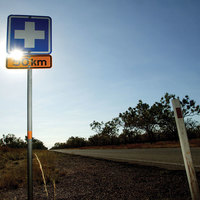The medical profession focuses on managing the health and care of patients but for medical practitioners themselves, these issues can often be overlooked.
In particular, locum medical practitioners need to be very mindful of managing their health, unpredictable schedules and work environment. Fatigue increases the chances of medical errors and ultimately harms the wellbeing of the practitioner.
Here are three ways to reduce and manage fatigue:
Managing your shifts, timetables and workload
The freedom and flexibility of locum work can lead to a more erratic timetable. A poorly planned or overworked schedule is the main culprit of fatigue for locum medical practitioners.
Here are some indicators you could be at a higher risk of fatigue:
- Working more than seventy hours a week
- More than fourteen or more consecutive hours worked at least twice
- No short breaks taken during work and skipping meal breaks
- Taking no full day off from work
The struggle to land shifts, particularly for junior practitioners, can lead to working overtime or taking double shifts to make up the lower rate of pay. Another common practice is for permanent doctors to take locum positions during their annual leave which further compounds the issue.
The Australian Medical Association has a great fatigue risk checklist as well as an assessment tool that can measure/monitor if your working patterns are at risk of fatigue.
Weighing priorities and responsibilities for your workload will differ depending on your role and the nature of your work. Be conscious of travel commitments as well as a locum practitioner. It is important to honestly assess and determine your risk to fatigue and its impact on your quality of care and patient safety.
Be mindful of your work environment
Both employers and employees have a responsibility for mitigating fatigue incidents through educating, identifying and controlling the risks. But with locums constantly jumping from place to place, they are prone to varying hospital environments.
For this reason, locum physicians should be their own advocates: knowing how to assess their own fatigue risk and researching their own State/Territory fatigue policies and workplace fatigue management systems.
Considering the design and layout of your workplace is also important.
Is there:
- ample and effective room lighting?
- available access to rest areas and nutritional food?
- secure and effective communication methods?
- locker rooms and showers?
- available accommodation and/or parking for locum or after hours’ workers at the hospital?
Managing personal health and recovery
It is vital for locum workers to take care of their personal health and allow sufficient time for resting and recovery. Not only is this essential for your own wellbeing as an individual but for the wellbeing of your patients and the workplace you are representing.
According to the Australian Medical Association, 18 hours of sustained wakefulness is similar to having a blood alcohol reading of greater than 0.05%. Sleeplessness can lead to increased stress, poorer physical and mental performance which can then lead to increased chances of cardiovascular and gastrointestinal illness in the long term. A minimum of eight hours sleep between your shifts and maximising the opportunity to take short breaks during your shift are recommended.
A poor diet, lack of exercise and low emotional or mental health will have a direct impact on your risk or how well you manage fatigue. An external GP can give you objective advice on fatigue and if it is affecting your overall health.
Managing external commitments outside of work (such as spending time with family and friends, sports and any other recreational activities) around your downtime can be challenging but it is important to strive for a work and life balance.
When planning your work schedule, make setting aside time for you to unwind, recover and recharge (both physically and mentally) a priority. Being your own advocate for your personal health as a locum worker not only benefits you but your work, patients and fellow staff will reap the rewards too.







